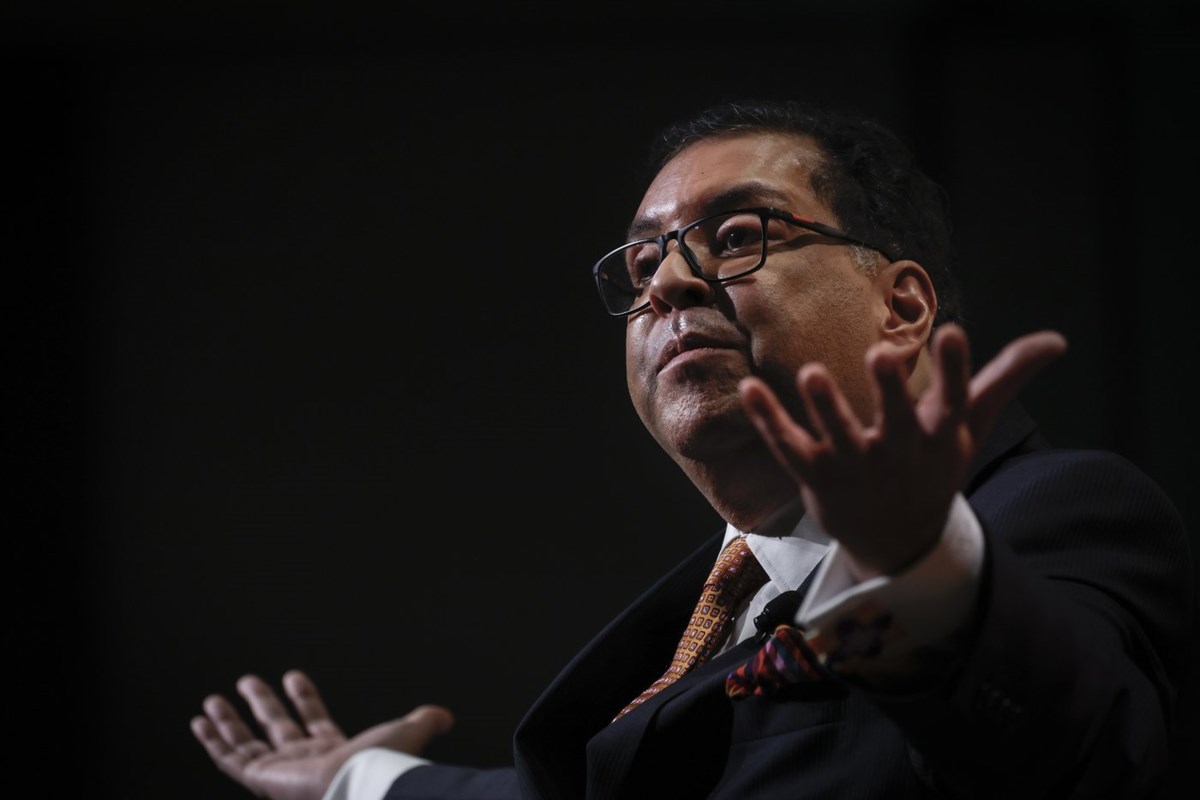The ‘Black Mirror’ Redemption Arc: In a Bleak Present, the Past Meets the Future

‘It feels like we’re in a Black Mirror episode’, is a phrase I’ve heard way too many times for comfort – perhaps because it confirms the worst. The show, since its debut in 2011, has attempted to look at the growing interdependence between humanity and technology (for the most part) and more often than not, the rapid rise in tech coupled with human complacency has led to less than ideal (disastrous) results.And yet, there are brief segues where it isn't about ‘new tech' as much as it is about the consequences of a world where human existence is reduced to a user, a statistic, or a cog in the metaphorical machine. Over seven seasons, the creator Charlie Brooker has attempted to do this by using exaggeration while staying rooted in an understanding of human psychology and anxieties about the near and far future. However, the future – as it often does – caught up, making some of Black Mirror’s dystopian ideas a ‘reality’. The paranoia from Black Mirror episodes left the screen and entered real life.‘Be Right Back’ & the Ethical Dilemma One of the series’ more memorable episodes (partly because its recall value has increased in a AI skepticism world) is ‘Be Right Back’ wherein Martha (Hayley Atwell) uses artificial intelligence to create a likeness of her boyfriend Ash (Domhnall Gleeson) after he’s killed in a car accident. The episode, while being a gut-wrenching exploration of death and grief, also lends itself to a conversation around the ethics of Martha’s act. The show has the eerie capability to make things seem simple despite the potential repercussions.It's also one of the episodes that doesn’t seem as far-fetched as they had then – with the rise of easily accessible chatbots that claim to simulate real-life relationships. These specific AI chatbots fulfill ‘social’ needs — the assistant can be a friend, a confidant. Research conducted by Stanford School of Medicine's Brainstorm Lab for Mental Health Innovation and tech safety nonprofit Common Sense Media suggests that these AI companion bots could pose serious risks to kids and teens under 18. In ‘Be Right Back’, this concept is pushed in a similar direction (think Spike Jonze’s ‘Her’). Ash isn’t just ‘Ash’ – as a chat bot, as a voice over a call, or even a glorified mannequin – Ash ceases to be after his passing but it's Martha’s grief that keeps him ‘alive’, in a sense. And that attachment soon devolves into something unhealthier even when the motivations are, without doubt, pure. It’s the ethics of creating an ‘image’ of Ash that can’t grow and evolve the way Ash would have – had he been alive – are murky at best. When this complicated ethical dilemma ends up doing more harm than good, the act invites even more scrutiny. And ‘Be Right Back’ is an episode that explains a lot about why Black Mirror does or does not work. With all its complex technology and stunning set pieces, the episode works because of Ash and Martha; much like ‘Shut up and Dance’, ‘USS Calister’, or ‘Hang the DJ’, and the much-loved ‘San Junipero’. Despite the focus on the ills of technology, most of the more popular episodes worked because the characters had depth and personality – even if the stories themselves weren’t relatable, the characters’ fears and motivations usually were.One of the reasons for season 5 (and parts of 6) not hitting the nail on the head were the paper-thin characters – despite your best attempt at empathy, most of the episodes simply felt hollow, the incisive commentary paling in comparison. It’s not a bad show per se but Black Mirror essentially suffered from success.For instance, ‘Striking Vipers’ clearly holds itself back. The episode follows two old friends Danny and Karl (Anthony Mackie and Yahya Abdul-Mateen II) who reconnect over a virtual reality fighting game, except their avatars begin a sexual relationship. The episode explored themes of infidelity, gender and sexual fluidity, and the omnipresent discussion of the connection between real and reel avatars. The episode makes it clear that the reel avatars experience a certain degree of sentience and the transfer back to real-life doesn’t rob the characters of their memories – the episode ‘USS Callister’ uses a similar idea to play up its dark themes.Reactions to the episode were divided, primarily because the characters weren’t fleshed out enough and there were obvious questions – mainly about the way their online persona’s arc would manifest in real life – left unanswered. And yet, ‘Striking Vipers’ was superior to the rest of the season.Black Mirror season 5 felt more detached from its audience – in trying to keep the same sense of dread alive, the makers pushed the stories too far to the point of feeling out-of-touch. Look at ‘Smithereens’ for instance – the episode where a rideshare driver in London, Chris Gillhaney (Andrew Scott) abducts an intern at a social media company to get to the CEO Billy Bauer (Topher Grace). On the face of it, the episode fits the Black Mirror mould perfectly – a rich CEO turning a blind eye to the dangerous effects of his technology, one specifically created to feel addictive would be put through the wringer by a show like this.But the episode disappoints – not that it skews in Bauer’s favour but it isn’t nearly as scathing enough in its derision. The CEO doesn’t get much of a character arc either which makes it harder to buy into the complex conversation around complicity and morality.Since its shift to Netflix, the show became a part of the zeitgeist of the late 2000s with millions tuning in for the show, critical acclaim and numerous awards in tow. But the world turned increasingly bleak – the COVID pandemic, for instance, left everyone feeling a lingering sense of dread, worsened by developments in world politics. Even Brooker agreed. In May 2020, while speaking about the possibility of a sixth season, he told Radio Times, "At the moment, I don't know what stomach there would be for stories about societies falling apart, so I'm not working away on one of those.” Many expected Black Mirror to only get darker, reflecting the time it existed in. Part of it was also hope, fans hesitant to write the show off just because of a weak season considering season 5 (2019) was, for many, the series' worst.However, Black Mirror quickly learned from its mistakes – season 6 was marginally better than its predecessor and just as timely. But season 7 is really where the show found its groove again and somehow upped the ante while doing it. The very first episode of season 6 (‘Joan is Awful’) only seems to age better as time passes, especially with the rise of conversations around the ethics of AI art.When the episode dropped, people were quick to draw comparisons to the conversations around the use of AI in the entertainment industry during the Writers Guild of America (WGA) and SAG-AFTRA strikes in 2023. AI models like ChatGPT and Character.AI had been around for a few months and their user base has only expanded since then. At the time of writing this, the conversation around art and AI continues, especially in the wake of AI making recreations of the Studio Ghibli art style.There was a distinct shift in the Black Mirror universe, especially evident in three of the five season 6 episodes – ‘Loch Henry’, ‘Beyond the Sea’, and ‘Demon 79’. These episodes took viewers to the past – technology expanded beyond the digital into analog. This shift is one of the reasons why season 7 works where its predecessors failed – the focus is no longer just on technology as much as it is on a return to roots. Humanity returns to the forefront with technology humming in the background – sometimes nefarious, sometimes not. Sometimes simply defective. Characters the audience can't help but be captivated by returned to the screen and conversations around morality returned with renewed vigour. In Brooker’s words (in a 2023 interview with Esquire magazine), there was a danger of the show becoming about “consciousness being uploaded into a little disc”. Brooker considered creating a retro-styled sister universe to ‘Black Mirror’ called the ‘Red Mirror’. ‘Demon 79’, an episode centred around a sales assistant Nida (Anjana Vasan) who accidentally summons the demon Gaap (Paapu Essiedu) was released under that tag and it was one of, if not the most, inventive and campy of the lot. It's no surprise then that Red Mirror as a concept was subsumed into Black Mirror as a whole. "Who says I have to set this in a near-future setting, and make it all chrome and glass and holograms and, you know, a bit Minority Report?” Brooker asked. Season 7 recognises the strength in some of its most popular episodes – technology aside, the show works because of its conversations around human frailty and morality. It’s less about what we can create and more about what we stand to lose. For instance, the creator of Thronglet Beta in the episode ‘Plaything’ is faced by a similar moral conundrum as the CEO in ‘Smithereens’ – if your creation could potentially cause harm, even if unintended, what would you do? The season 7 episode takes an interesting call – there’s an implication of the game creator’s decision but we also get to see how the opposite decision would’ve turned out. The episode opens with Cameron (Peter Capaldi) being arrested for murder in a cold case. During his interrogation he talks about the game and how he got his hands on a copy. A younger Cameron steals the game from the creator Colin Ritman and comes to possess the only copy since, in his editor’s words, “He (Ritman) started ranting about a basilisk. Wiped the source code and all the backups. Whoosh. Whole thing’s gone.” But the mini creatures that one is meant to take care of in the game aka Thronglets show signs of sentience – they learn and develop themselves, asking for more and more energy and processing power to sustain themselves. Like many previous Black Mirror episodes, Cameron ends up attached to these creatures on his screen to the point of doing everything in his power to let them survive. To the investigators (and viewers), his actions are amoral and criminal but to him, his actions result from a single question: what makes one ‘life’ more important than another? The ending posits another question: if real-world morality doesn't apply to digital life, what stops them from acting in immoral ways?It has the twists and turns, it has the feeling of existential dread that the show often features, and it has sort of an ambiguous ending. It’s Black Mirror excellence and yet, the most ‘dangerous’ piece of technological equipment in the episode is a computer from the 1990s. Even when the show goes back to its traditions – ‘consciousness being uploaded into a little disc’ (of sorts) – it shifts focus to its characters. ‘Eulogy’ is an episode about death, plain and simple. But it’s also about regret and the way ‘version of events’ can often be coloured by one’s own shortcomings. Philip (Paul Giamatti) receives a call from a company called ‘Eulogy’ – a woman he knew back in the day (Carol) has passed away and the company is trying to reach out to people in her life to celebrate her life.An AI guide (Patsy Ferran) joins Philip on the journey, taking him through pictures and postcards to stitch back his memories of Carol – how he remembers her and how the guide views that memory. The technology is incidental – it isn’t central to the plot the way Philip is. In trying to remember Carol, Philip comes face to face with the life he could’ve lived and his part in a forsaken future. It’s this sense of despair that’s reflected in the show’s opening episode ‘Common People’, probably the one that would hit closest to home. After a medical emergency, school teacher Amanda (Rashika Jones) and her husband Mike (Chris O’Dowd) turn to a company that offers them ‘free’ surgery that would allow Amanda to live a healthy life. The catch? Mike has to pay a $300 subscription fee per month. Black Mirror makers looked at the conversations around increasingly complicated (and often exploitative) subscription services and asked, “What if you were paying a subscription for your loved one’s life?” Does it take something relatively mundane and put it in a setting that makes it impossible to not think of its larger moral implications? Yes. But that’s what Black Mirror does best. As the episode progresses, subscription costs increase and at the same time, the ‘tier’ that Amanda is in becomes near inhabitable. Everyone subscribed to a lower tier essentially makes sacrifices for the comfort of those in tiers above them, including a ‘Lux’ tier. Amanda starts spouting advertisements beyond her control and Mike, awfully committed to giving Amanda the best life he can, endangers himself to afford subscription costs beyond his means. The episode is as enraging as it is disheartening – the couple’s journey makes it impossible to not root for them, despite the feeling in the back of your mind that’s screaming that they’re stuck in an inescapable vortex. ‘Common People’, much like its name, is about everyone – it mixes commentary about subscription services with the anxiety associated with inaccessible healthcare. By the time you’ve watched the entire season, you’re left with the one feeling you’d been chasing with the show – ‘This probably wouldn’t happen to me but what if it does? It could and that’s terrifying’. The show, with a mix of experimentation with something new and a reliance on what they’ve tried and tested, proves the fans that refused to give up on it, right. Why George Orwell’s 1984 Is Hauntingly Reminiscent of Contemporary India(At The Quint, we question everything. Play an active role in shaping our journalism by becoming a member today.)



















